- “It’s not just about producing wine anymore – it’s about survival.”
- “Things are extremely tough at the moment.”
- “Just keeping the lights on feels like an accomplishment.”
- “We’re running out of ways to cope.”
- “We are all living on our nerves.”
- “We want to keep Lebanon’s winemaking legacy alive.”
- “The good news is that the grapes have been picked and safely transported to the winery.”
- “The harder the situation, the stronger our resolve – and the better the wine we produce.”
I sent questions to my contacts in the country and received replies from John Karam, winemaker at Karam Wines, George Sara, CEO of Château Ksara, Lebanon’s largest winery, and Emile Majdalani, commercial director of Château Kefraya. They cover the current situation, the problems they are facing and how the wine world can help them…
How are things?
‘Things are extremely tough at the moment’John Karam (below right): “To be honest, things are extremely tough at the moment. Lebanon has been through one crisis after another – 2019's financial collapse, the wave of COVID in 2020, the devastating port explosion, another wave of COVID, and now a war. It's like every time we try to catch our breath, something new comes along.
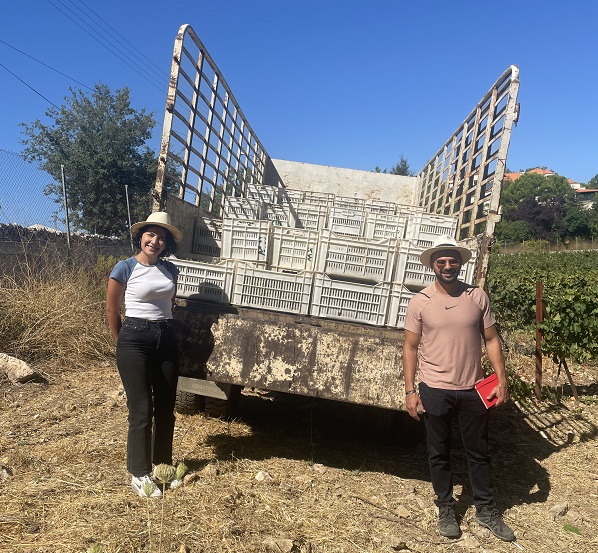
“The last five years have been nothing short of catastrophic for the country, and now, with this war, it feels like the final blow. The resilience of Lebanese people is often praised but living it day to day is something else entirely. We’re doing our best to keep our spirits up and keep going, but the reality is that the challenges we face right now are unprecedented.”
‘It’s yet another very tragic time for the region’George Sara (below): “It’s yet another very tragic time for the region but we have been here before, most recently in 2006 when we last had conflict with Israel.
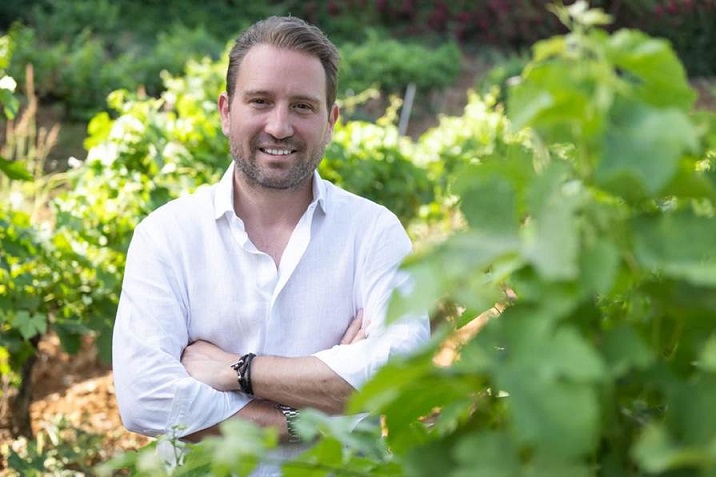
“I must stress that the winery, Château Ksara, is nearly 170 years old and we have lived through war, famine, social upheaval and political instability during this period. Château Ksara is more than just a winery; it is a witness to history.”
How has your daily life changed?
‘The uncertainty has a psychological toll’John Karam: “Daily life and work have become so difficult, especially for us in the south. We're doing everything we can to minimise transportation between Beirut and our vineyards in Jezzine because the roads aren’t safe, and we don’t want to put our employees or ourselves at any higher risk of danger. But, of course, this only makes working even more challenging. Our operations rely on movement – moving grapes, moving bottles, moving people. When that becomes nearly impossible, it feels like we’re running out of ways to cope. To say life has changed would be an understatement.
“The uncertainty has a psychological toll, too. Everyone in Lebanon feels this pressure. Yet, despite all this, we show up every day because we believe in what we do and we want to keep Lebanon’s winemaking legacy alive. It’s not just about producing wine anymore – it’s about survival.
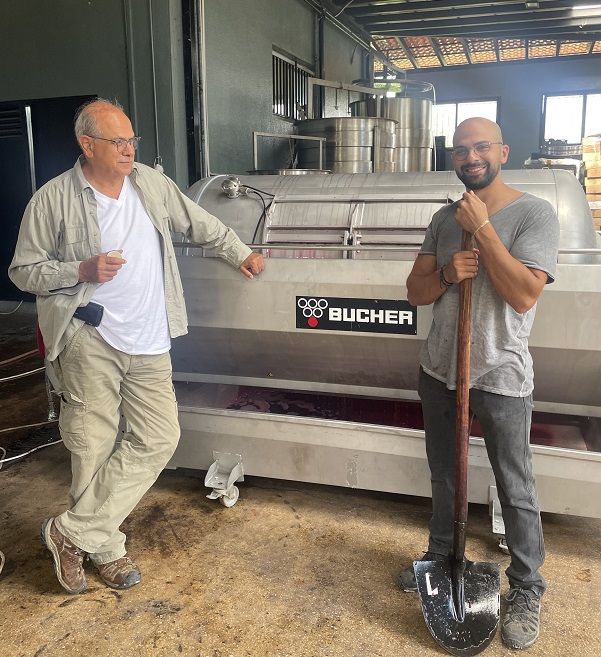
“For us, this is more than just a business. It’s a passion, a way of life that has been passed down to us by our parents. It’s our heritage, and it runs deep in our veins. Winemaking is part of who we are, and it’s not just something we do – it’s how we live. Every bottle reflects that legacy, that commitment, and that love for our land.
“Our commitment to Lebanon, to our land, and to our people has never wavered, even in these dark times. We believe deeply in what the wines of the south can offer, and we’re determined to showcase the beauty and potential of this land, no matter the struggles we face. There’s a saying that struggling vines make better grapes, and in many ways, the same applies to us. The harder the situation, the stronger our resolve – and the better the wine we produce.
“Every bottle that comes out of Karam Wines is a testament to the resilience of not just our vines but also the people who tend to them. We are rooted in this land, and despite the conflict, we are committed to staying and continuing the proud tradition of winemaking here. It's not just about surviving; it's about thriving and telling the story of our terroir through every glass of wine.
“This is why, no matter how difficult it gets, we will keep moving forward. For us, it’s more than a business – it’s a mission to show the world what Lebanon, and particularly the south, can offer.”
‘We are all living on our nerves’
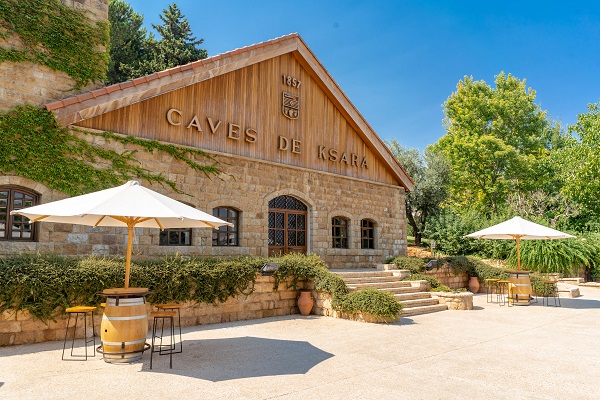
George Sara: “As long as the roads are open and the port and the airport are operational, we can function. Of course, we are all living on our nerves and worries about the long-term effects on the economy but, again, I must stress we’ve been here before. In fact, during the 1975-90 civil conflict our staff faced kidnapping every time they drove to work; the winery was occupied by an armed militia and our French winemaker had to give instructions over the phone from France… and this was before mobile phones!
“We live with war, conflict and instability. We factor all these into our business model and our mental state. We are very good at problem solving.”
‘We keep working with conviction’Emile Majdalani: “Since the end of the harvest, we had to evaluate the level of risk on a daily basis, not to expose our workers to danger, while being able to prepare the orders. Our team members live in bombarded villages, their movements are made very complex, but we keep working with conviction. As for the vineyards, they are now resting and the timing is fortunate.”
What are the main problems?
‘Financially, we’re hanging by a thread’John Karam: “Our challenges, as you can imagine, are enormous. Financially, we’re hanging by a thread. The Lebanese lira has lost so much of its value, inflation is out of control, and the cost of essential materials keeps rising. On top of that, we have no support from anyone, and getting our wines to export markets is harder than ever.
“The instability in the country has also changed consumer behaviour. People are not buying wine – they're stocking up on essentials like canned foods, bread, and anything they can store during times of war. Wine, which is often seen as a luxury, is simply not a priority for most right now. This has added even more pressure on local sales, making it harder to generate income to sustain operations.
“Logistically, the instability makes every part of the business harder. Even basic services like electricity are unreliable, but that’s nothing new for us. What’s new this year is that the electricity rates have gone up, making them more expensive than ever. And when you rely on controlled temperatures for winemaking, storage, and production, these costs add up quickly.
“Right now, just keeping the lights on feels like an accomplishment. Yet, despite everything, we’re not giving up. We’re here to stay, and we’re fighting to keep Lebanon’s winemaking tradition alive, no matter how hard the road gets.”
‘We more determined than ever’
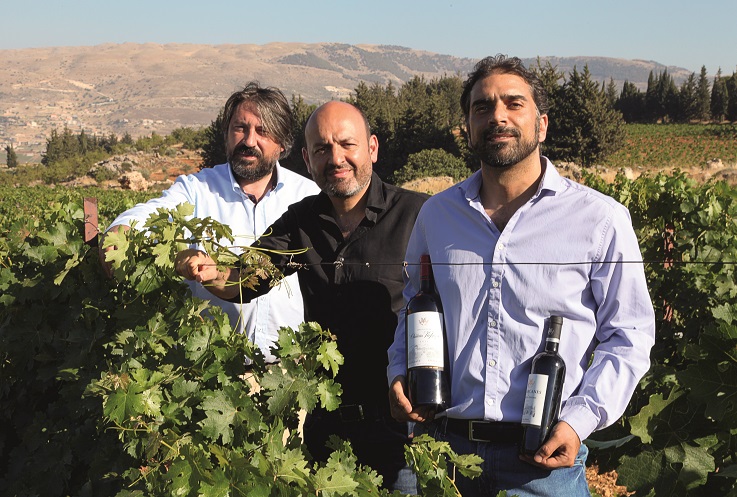
Emile Majdalani (on the right, with Edouard Kosremelli, general manager, and Fabrice Guiberteau, oenologist and technical director): “Our problems and challenges are linked to our geography, being situated in a very unstable region, filled with conflicts.
“Carrying the wines to the market is certainly more challenging than usual, trucksʼ circulation is made very difficult; we also fear that Beirut Port stops being operational, we are resisting and more determined than ever!
“Another real problem remains the drastic decrease in terms of consumption, knowing that a great share of our sales is in the Lebanese HoReCa. Our high ratio of exports versus domestic sales is helping a lot. Our international presence and success are saving us, and it is not the first time, probably nor the last.”
How was the 2024 harvest?
‘Finding labour was nearly impossible’
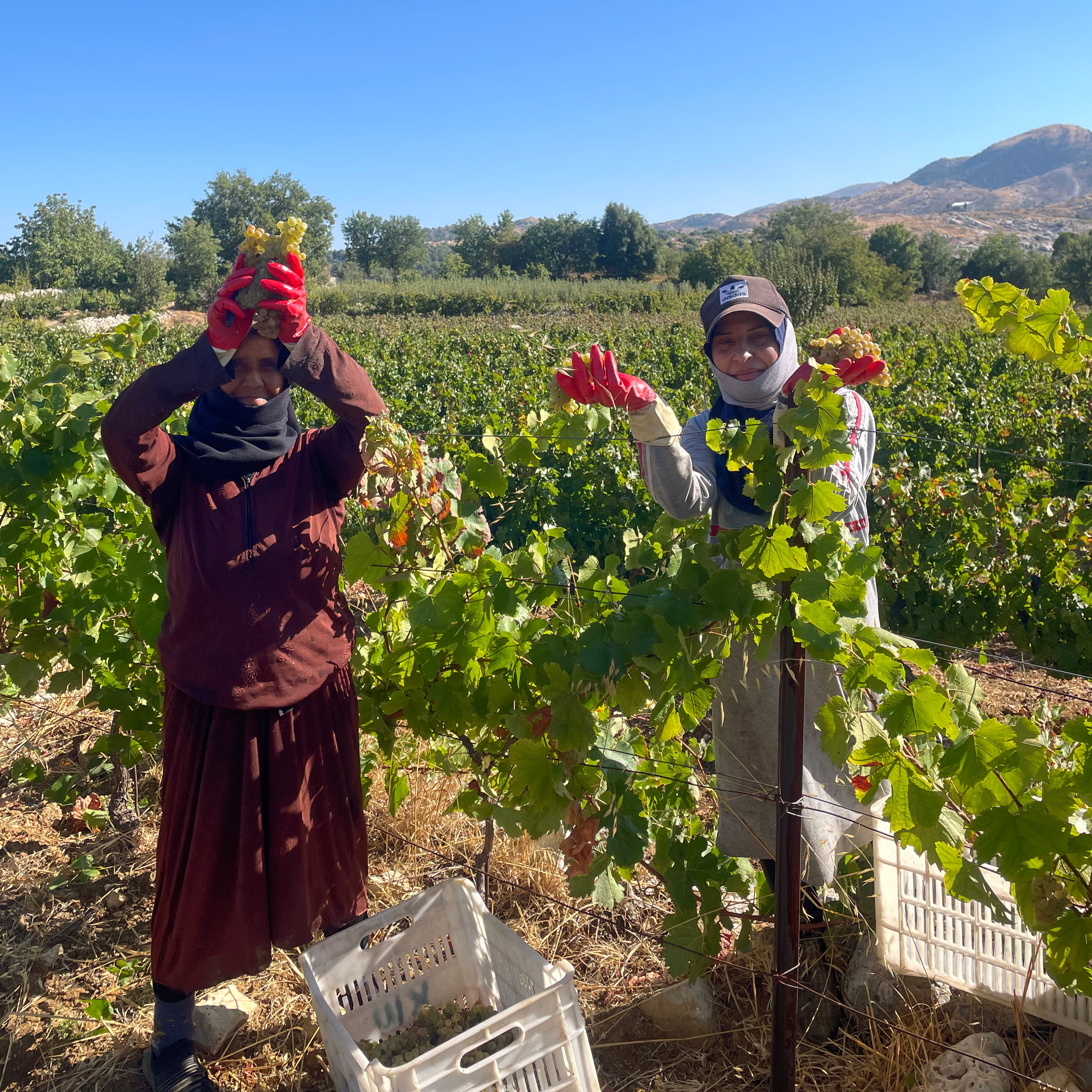
John Karam: “This year, Lebanon’s climate played a pivotal role in shaping the quality of our 2024 harvest. The early growing season was marked by a warm, sunny spring that encouraged even budbreak and healthy vine growth. Summer was long and dry, as is typical for our Mediterranean climate, but with just enough cool nights to preserve the freshness and acidity in the grapes. We had to be vigilant in deciding when to pick each parcel for optimal ripeness but that wasn’t the problem. The real challenge was getting those grapes off the vines.
“Finding labour was nearly impossible. Most of the seasonal workers have left the country, and even our permanent foreign workers are terrified, wanting to go back home while they still can. The harvest, which is normally a well-coordinated effort, became chaotic. We'd be in the middle of picking, and the sound of bombs and sonic booms would send the workers into a panic, scattering them across the vineyard. What used to take a single day now drags out over two or three days, with costs doubling because of the delays and the limited manpower.
“It’s incredibly frustrating to have such high-quality grapes on the vines and to struggle to bring them in safely. We did our best to get through it, but the fear and instability are making every part of the process harder than ever. The challenges didn’t stop once the grapes were picked. After every harvest, we held our hearts in our hands, hoping the trucks would safely make it to the winery. The roads are unpredictable, and each journey feels like a gamble. It’s a tense moment for everyone involved, knowing that anything could happen between the vineyard and the winery.
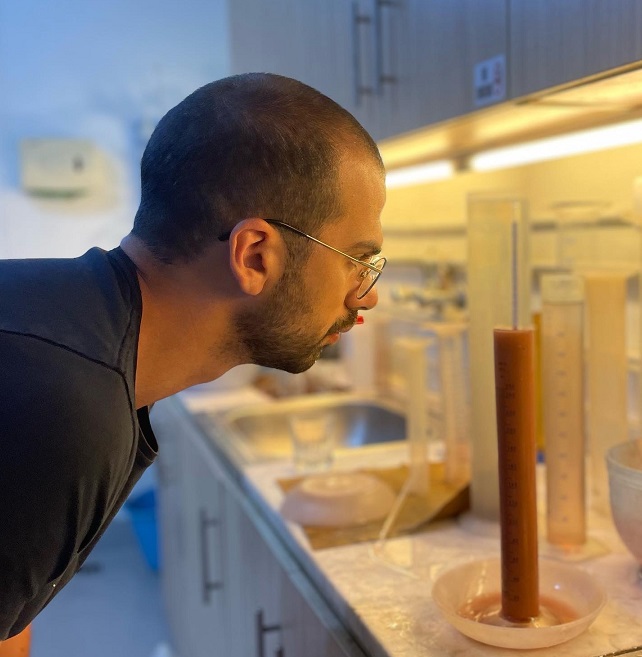
“Some of our employees have also been displaced due to the conflict, adding even more strain to an already difficult harvest. Despite everything, though, we persevere. At the end of the day, when we look at the sunset from our winery, we thank God that we’re still alive, still able to do what we love, and still committed to producing wines that reflect the beauty and resilience of Lebanon.
“Despite the challenges, the wines from this vintage are absolutely beautiful, and they have amazing potential. The reds are showing deep, concentrated flavours with remarkable structure, thanks to the dry conditions that led to smaller, more intense berries. Expect bold, rich wines with dark fruit flavours like blackberry and plum, underscored by a firm tannic backbone that will give these wines longevity. The whites are equally promising, boasting a vibrant acidity paired with layers of citrus, stone fruit, and a hint of minerality that speaks to our terroir.
“In short, despite the difficulties we faced, this vintage reflects the resilience of both our vines and our people. These wines are not only a product of a challenging year but also a testament to the extraordinary potential of Lebanon’s terroir. They are wines to watch, with the ability to evolve beautifully with time.”
‘The Bekaa Valley is always very generous’George Sara: “Too early to tell but it was a very mild year with longer ripening so the signs are promising. The Bekaa Valley is always very generous. Funnily enough it was similar weather to 2006. That was a magnificent vintage despite everything and so, of course, we're hoping for the same. The good news is that the grapes have been picked and safely transported to the winery where nature's magic is happening. If we still had to pick, the situation would be very stressful because of the threat from constant aerial bombardments.”
‘We have secured the next vintages of our wines’
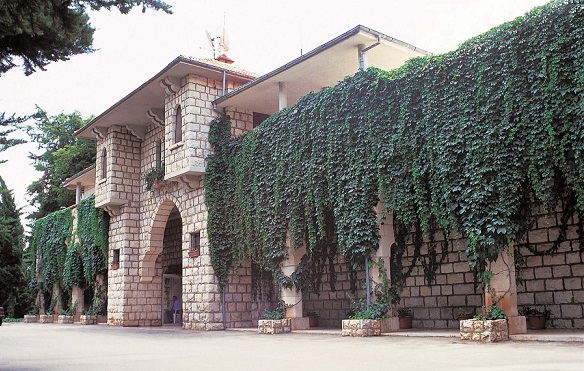
Emile Majdalani: “We have successfully managed to harvest from beginning of August till mid-September, just before the escalation of the conflict, and have secured the next vintages of our wines. Volumes and quality are more or less equivalent to previous year, with an early maturity and promises of a great vintage year.”
How can the wine community help?
‘We need people to know about the struggles we’re facing’John Karam: “The wine community can help by talking about what’s happening in Lebanon. We need people to know about the struggles we’re facing – not just the war, but the string of crises we’ve been battling for years. By buying our wines, the international community can provide much-needed fresh dollars to keep businesses like ours going.
“Every bottle sold abroad helps us pay our workers, maintain our vineyards, and continue doing what we love. The international wine community can help by talking about Lebanese wines, by creating a conversation around what we’re going through. If people ask for Lebanese wines in restaurants, in stores, it creates a demand that can help sustain us. Every bottle sold abroad is a lifeline for us back home.
“The challenge isn’t just making great wine – it’s finding ways to get it into the hands of people who appreciate it. If the wine community could connect us with potential partners who are interested in carrying Lebanese wines, it would open doors that are currently out of reach. For Karam Wines, we are actively looking for importers in the UK, and having those connections could be a game-changer. More exposure in international markets would provide us with the stability we need to keep producing, even in the face of ongoing crises. Lebanon’s wineries have so much potential – our terroir is unique, our history is rich – but without the ability to sell our wines, all that potential means little.
“This is a time for solidarity. Lebanese winemakers are doing everything they can to hold on, but we can’t do it alone. Your support, and that of others in the wine community, could be the difference between survival and closure for many of us.”
‘Buy Lebanese wine’George Sara: “Buy Lebanese wine. It’s as simple as that. Jancis Robinson or Hugh Johnson (or even Libby Brodie) might be very influential, but I can’t see them solving the problems of the Middle East.”

 English
English French
French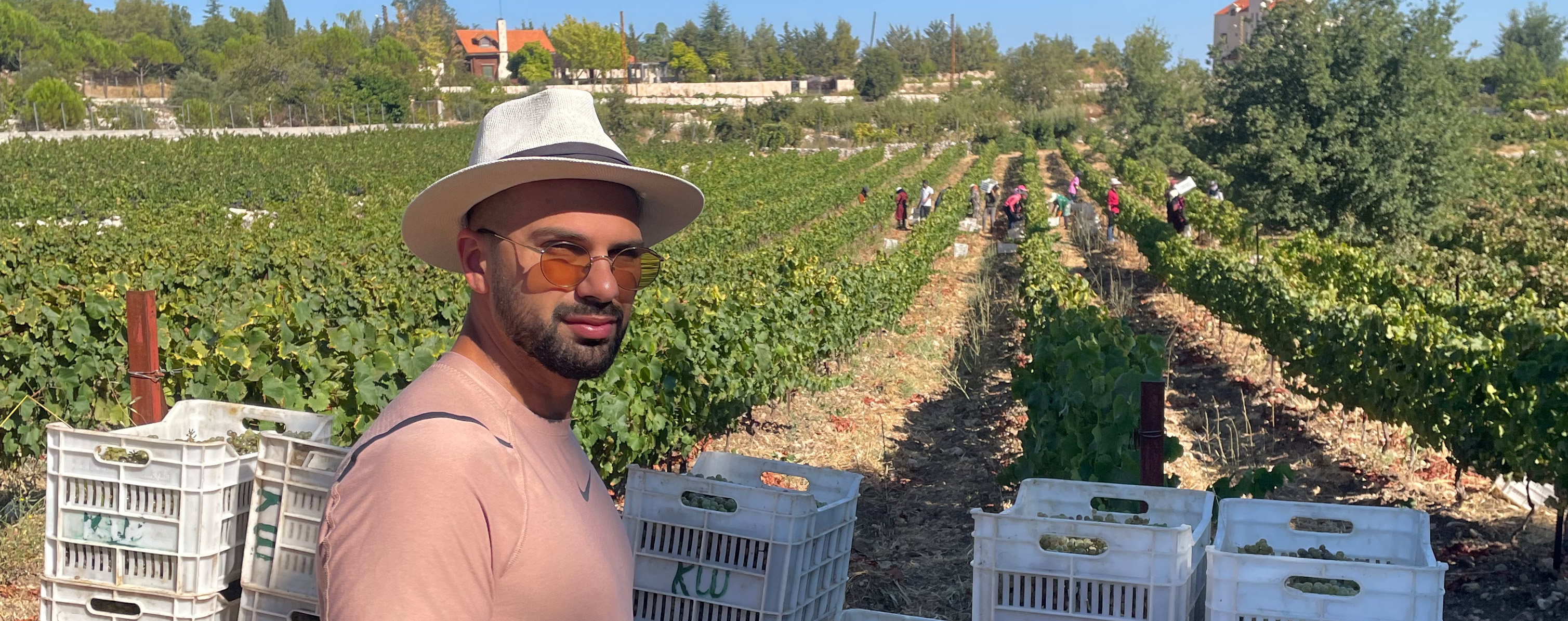







.png)


